"Our Journey with Adi, a True 'Love Child'"
Born with a rare syndrome and a serious heart condition, Adi Peder has defied odds to become what her family calls a 'Love Child.' Her mother, Oshrat, shares their family's journey and the lessons they've learned along the way.
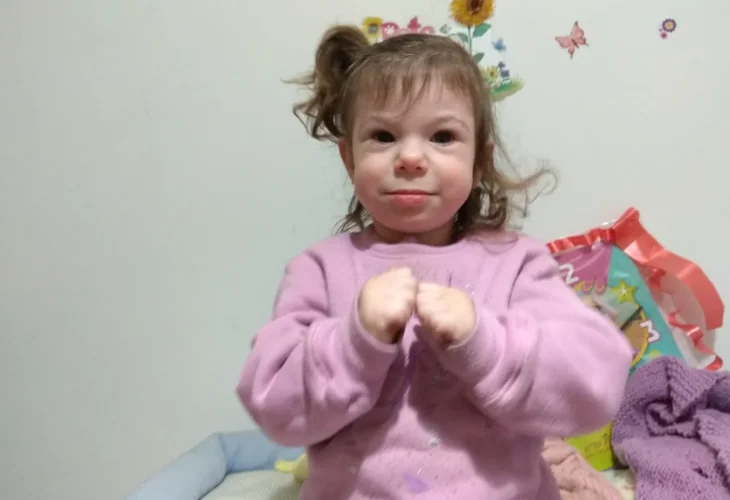
"It started as a routine pregnancy. Everything seemed perfectly normal, to the point where we had no reason to worry," recalls Oshrat Peder about the events eight years ago. They were then a family eagerly awaiting the arrival of another daughter. Since then, their lives have changed in so many ways, it's hard to imagine those ordinary times.
"About two months before the birth, the doctor mentioned for the first time that the baby seemed too small," Oshrat remembers. "I was sent for a fetal echocardiogram, which identified a small hole called a VSD between the heart chambers. They reassured us that this is common and often resolves itself. We felt calm.
"But at the start of the ninth month, panic arose again due to troubling results on a heart monitor. The doctor told me, 'Go straight to the ER,' and within an hour, I was at the hospital, signing forms for surgery."
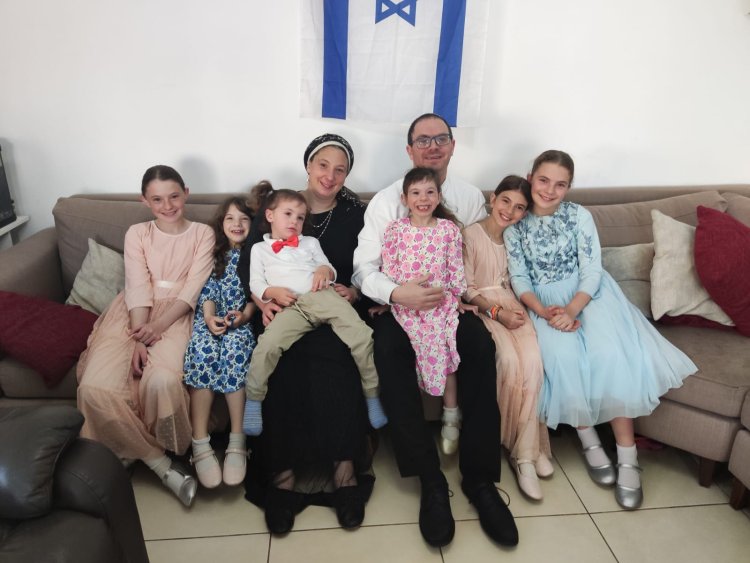
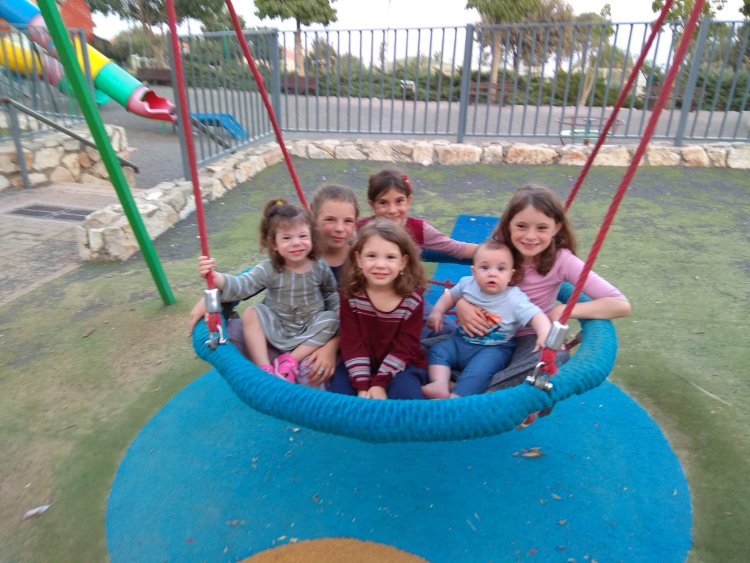
The moments after the birth are recalled by Oshrat as both calming and joyful. "The staff was wonderful," she says. "Our Adi was born at a low weight of 4.6 pounds, but it was at the start of the ninth month, and the doctors said it was normal. But soon problems surfaced: the nurses brought to my attention that Adi turned blue every time she fed from the bottle, indicating her oxygen levels were dangerously low."
"It was decided to admit her to the neonatal unit, and she underwent countless tests, all of which were normal. But only at three weeks old was her heart condition identified as rapidly deteriorating and her oxygen levels falling without recovery. We were sent home with a saturation monitor attached to Adi 24/7, so we'd know if there was a problem."
At that time, they had no idea that the heart condition was just a symptom of something broader. "Before discharge, we were referred for genetic testing," Oshrat recalls. "Weeks later, we were called into the hospital, where a phenomenal geneticist told us about 'Williams Syndrome,' which we were hearing about for the first time. She kindly explained that our daughter will be able to do everything, just at a slower pace. She would be short, musical, and very sociable, which is why it's called the 'Love Syndrome.' The doctor concluded the conversation with words we carry with us to this day: 'If you invest in her, she can do anything, because the sky's the limit.'"
"We left with a sense of relief, understanding that the world hadn't collapsed, and while our child would be special, she would be amazing and delightful in her own way, with Hashem's help."
Did the children understand?
"Absolutely, yes. My husband sat them down and explained in words suited to their level, emphasizing, 'We've told you all that we know. We'll learn the rest together.' Soon, we realized how important our openness was. In the months that followed, there were many tests and hospital stays, but they remained calm, knowing we hid nothing from them and included them in everything."
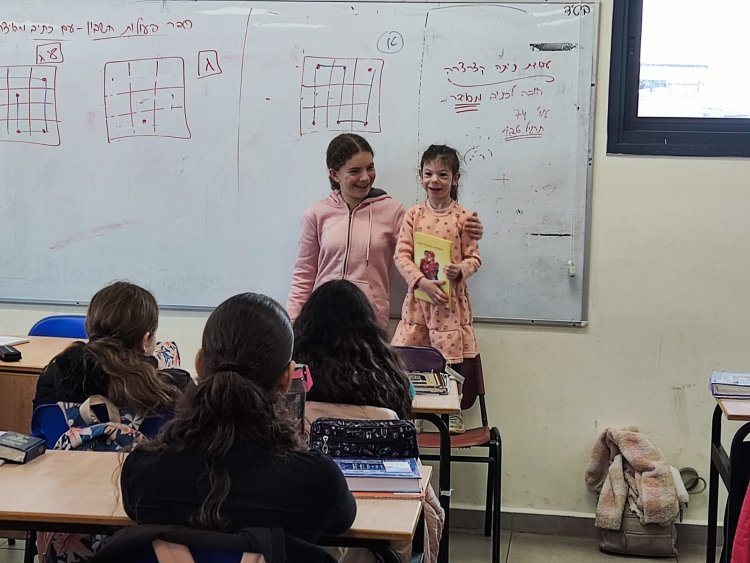
Part of the Community
"Adi was a sweet and cheerful baby, but from the start, she had to be connected 24/7 to an oxygen monitor," Oshrat recounts. "Whenever her oxygen dropped, the alarm would ring, and we'd rush to stabilize her."
"During one Shabbat, Adi's oxygen dropped, and we couldn't stabilize her. We realized she couldn’t stay home, so we rushed to Schneider Hospital. Adi was hospitalized for four weeks and underwent open-heart surgery. I stayed with her the whole time, while my husband ran the household. It wasn't easy, but thank God, since then, Adi only needs check-ups. Her heart doesn't function like a normal healthy person's, but it's healthy enough for her, and she gets by."
How did the community react to Adi's syndrome?
"After we received the diagnosis, we struggled with whom to tell. It was clear our close family needed to know, but we weren't sure about neighbors and friends. We live in Har Bracha, a small community where everyone knows each other. Eventually, we concluded that since Adi will grow up here and people would get to know her better sooner than later, it would be helpful for everyone. So we shared from the start, and the reactions surprised us."
In what way?
"Some people found it hard to accept her condition; some stopped talking to us, while others avoided the topic altogether. One good friend tried to convince me it was a mistake and that we should seek a second opinion."
"On the flip side, others displayed great solidarity, offering support and help. I remember shortly after her birth, I took my daughters to a local event. We brought Adi, and she was very sensitive to the noise. I was moved when they reduced the music volume, having noticed how distressed she was."
Oshrat points out that now the whole community knows Adi as the sweet girl she is, and it's brought growth. "People are more aware and supportive of those with special needs," she explains. "For example, when Ishay Ribo performed here, Adi went up on stage, having initiated it herself, and received cheers from everyone. People genuinely feel she's part of the community and respond in kind."
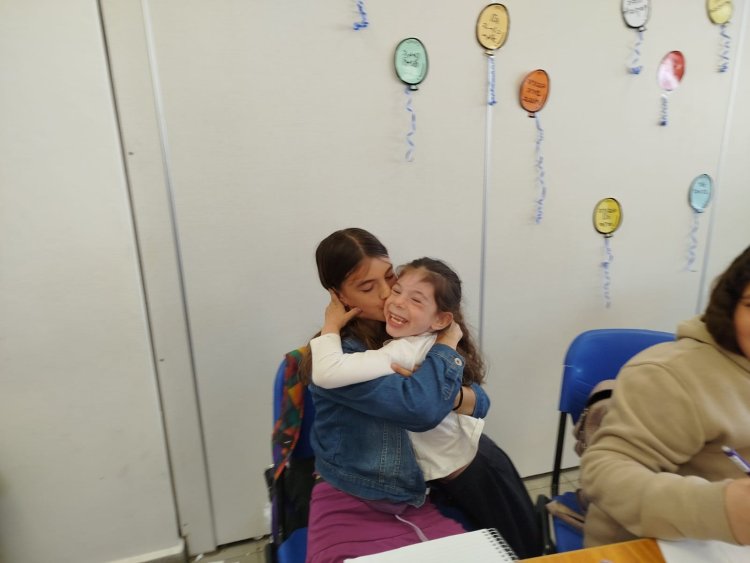
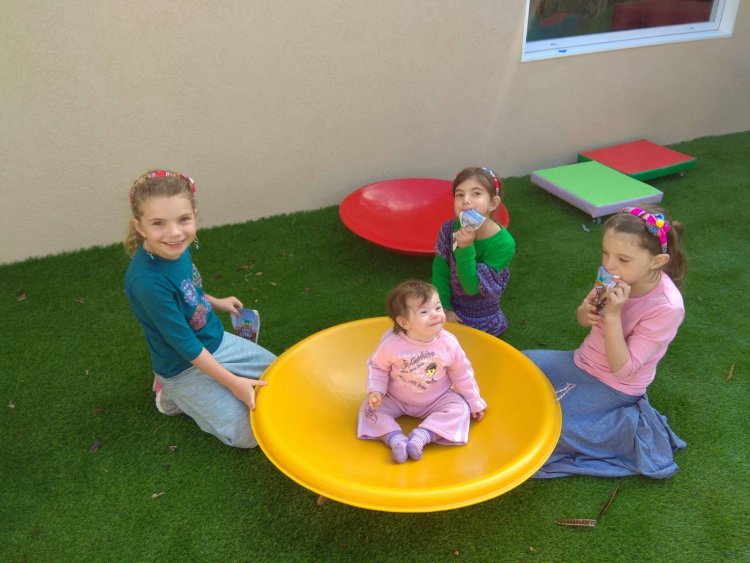
Not Looking for Special Treatment
As time passes, the nature of the challenges changes. "Thank God, there's a lot to manage at home," Oshrat explains, "and as a mother, I constantly struggle with how much to invest in Adi versus her siblings. Because everyone has needs. Plus, we remind ourselves not to lose track of our marriage, as it's not wise to pour everything into the kids and forget ourselves. We try our best to operate from a place of completeness and self-trust, constantly telling ourselves we're doing what we can, and it's okay to let go of what's beyond our reach."
Is Adi aware of her situation?
"Adi is integrated into a regular first-grade class. She is fully aware of her condition and will tell her friends, 'I have Williams Syndrome.' At the start of the school year, she was interviewed for a children's magazine and asked about her challenges. She replied, 'It's hard for me to write and draw,' which is true. Fine motor skills are difficult for her. She works hard to succeed, and we encourage her greatly."
"We encourage, without concessions," Oshrat stresses. "This is a message I want to convey to other families with special needs children. We often pity the child and make life easier because we feel bad for them without realizing the best way to make them feel included is to challenge them just like others. I wouldn't demand Adi do things she can't, but everything she can do, she must do like everyone else. Adi senses everything is done with love, and she repays us with an abundance of love."
Oshrat pauses, adding, "I know it might sound counterintuitive, but since Adi joined our family, I've felt a special calmness and peace. I've gained a positive outlook on life. We’ve received family cohesion, unity, and resilience," she repeats to her children and students, "we see Hashem in our actions, and it is our faith in Him that strengthens us, as He is behind everything."

